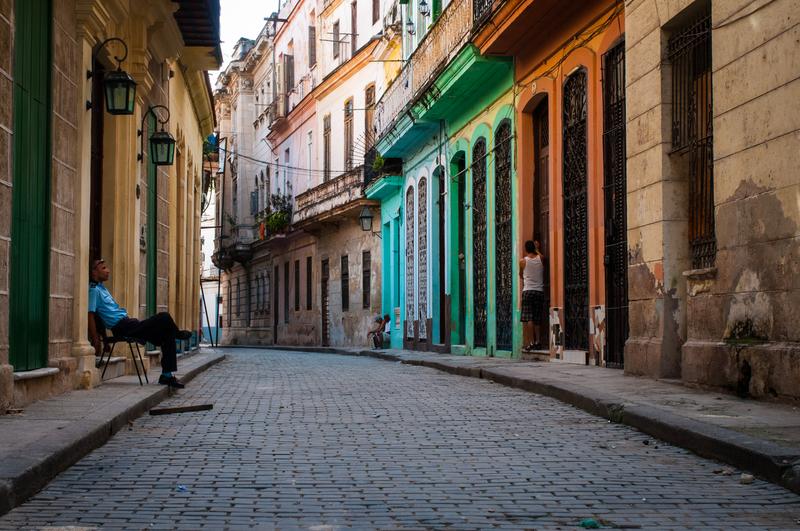
Airbnb is a company that connects people seeking places to stay with hosts who are renting their own rooms, apartments and houses. The seven-year-old tech startup adds value by making rooms searchable and the payments between renters and hosts quick, easy and safe. And it all happens online.
How, then, could Airbnb open shop in Cuba, an island where cash is king, Internet is scarce and business is heavily restricted by the U.S. government?
Sarah Kessler, a Fast Company reporter who wrote a story on Airbnb's early moves to educate itself about the Cuban market, spoke to WNYC's Julianne Welby. She said Cuba's bed-and-breakfast market has been growing since 1997, when the government allowed Cubans to rent their own homes to visitors. To plug into this market of "casas particulares," as the Cubans call them, Airbnb turned to "middle-men," internet cafes in Cuba like this one that offer to manage online communications for hosts, who often don't have their own Internet connections at home.
They're like "little Airbnbs," Kessler told WNYC, and now they're working directly for the real Airbnb.
Though Mastercard and Visa haven't yet started doing business in Cuba, Americans traveling to Cuba under one of the approved licenses will be able to pay for Airbnb rooms with their credit cards. Airbnb has tapped another middle-man, a Miami-based service with years of experience delivering money from Americans to Cubans. They'll process Airbnb customer payments and deliver cash to hosts without bank accounts.
Kessler said as Americans continue to travel to Cuba in larger numbers, the demand for hotel rooms may not be met by the current Cuban hotel market. Airbnb is filling that gap. American hotels will soon join foreign and Cuban-owned hotels and Internet connections and credit card services "are likely to change in Cuba," Kessler said. But for now, she said, Airbnb has an edge.
